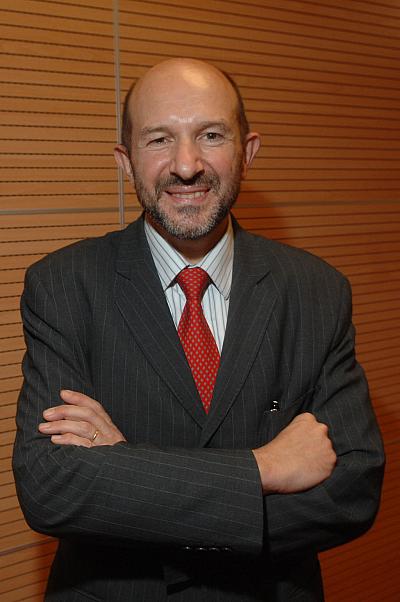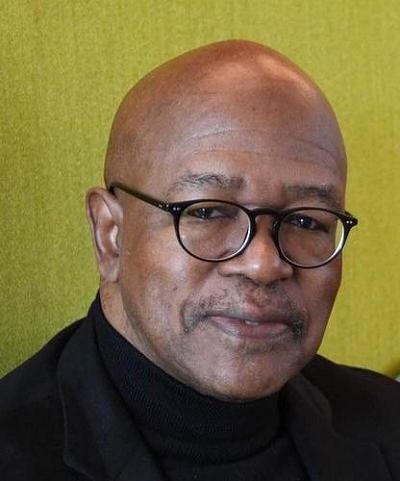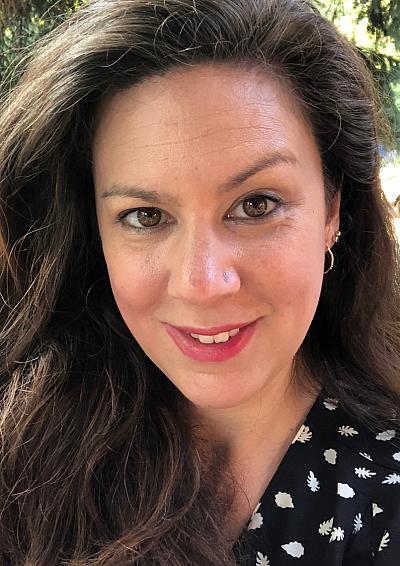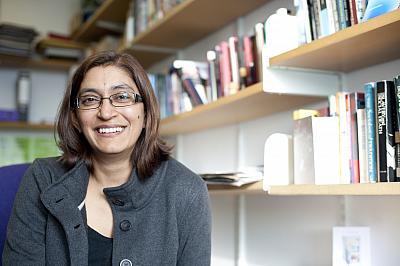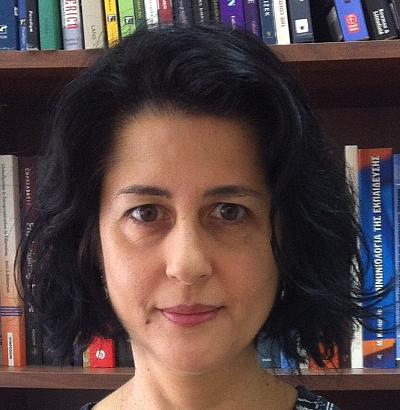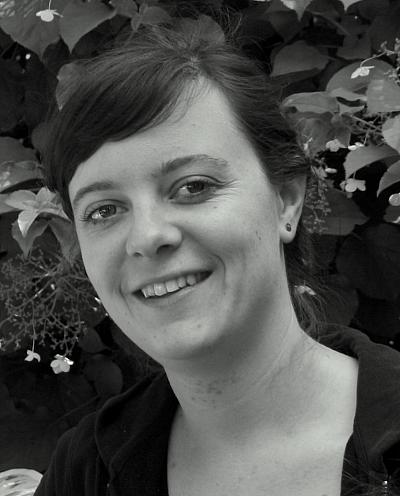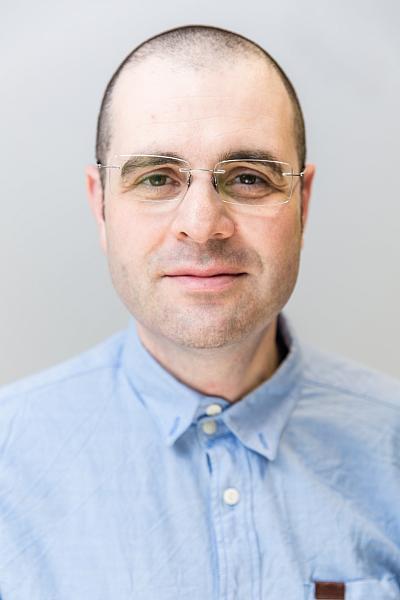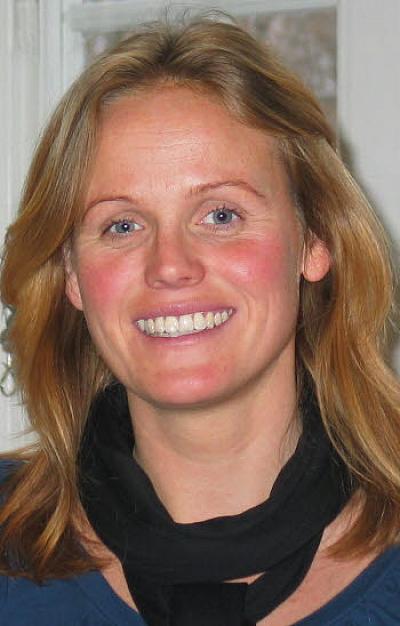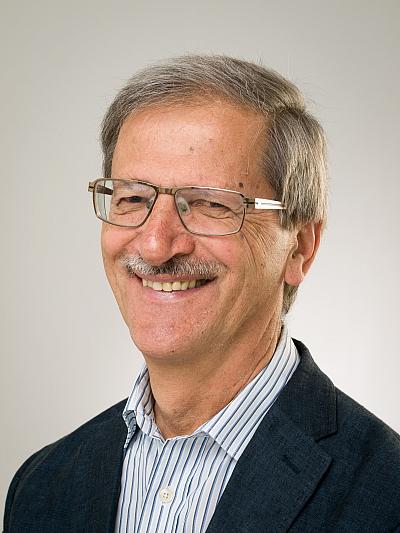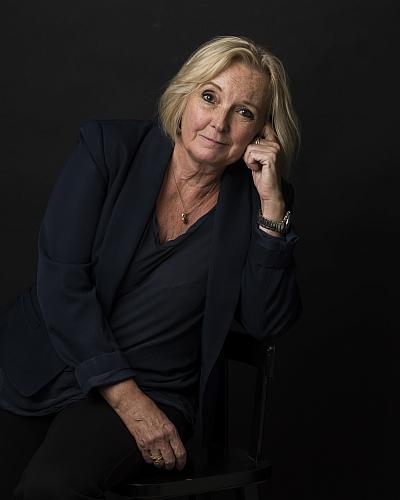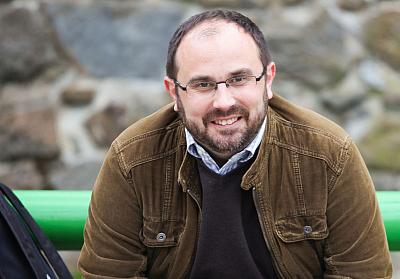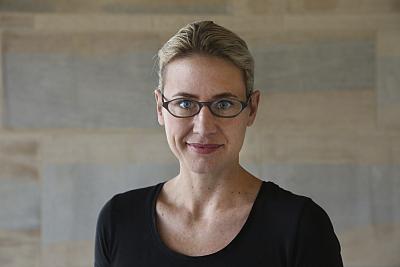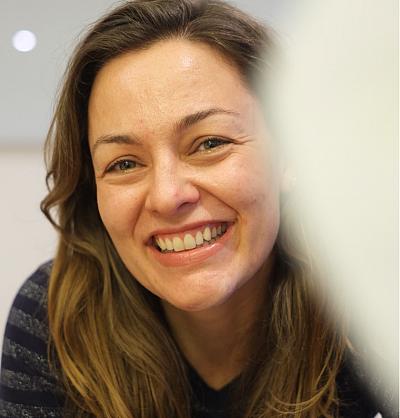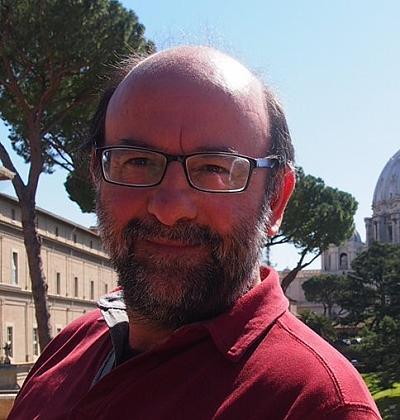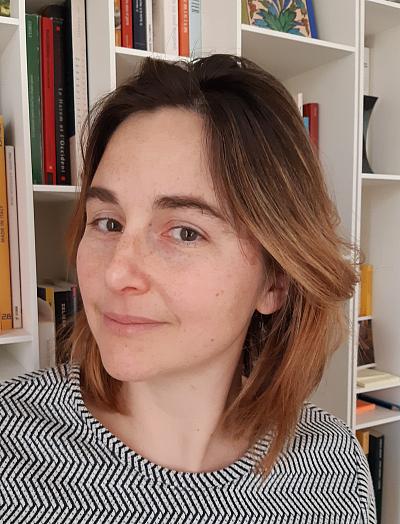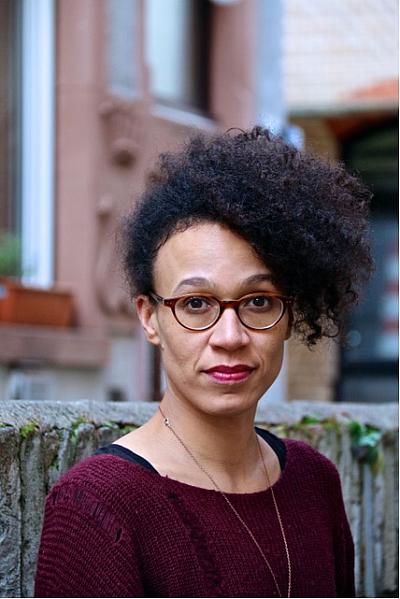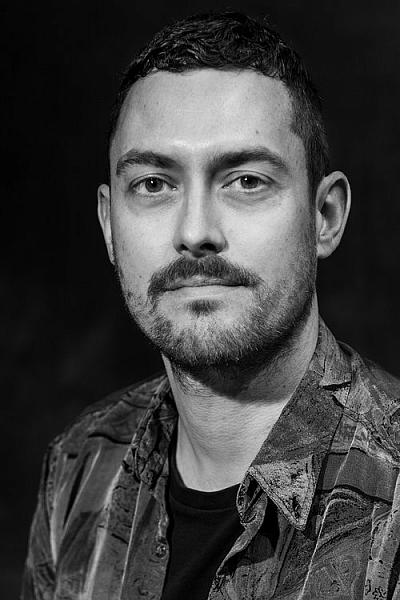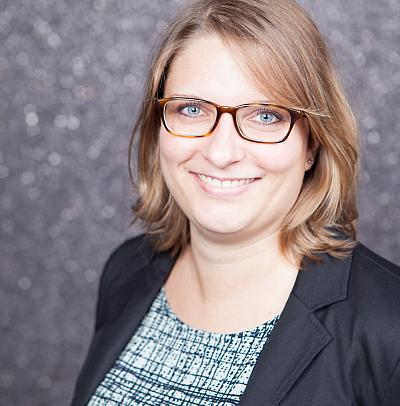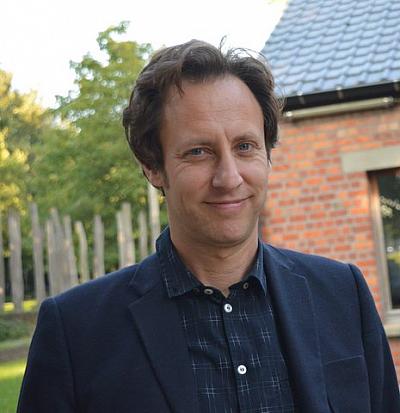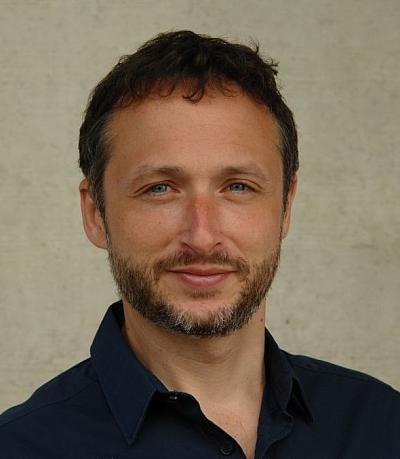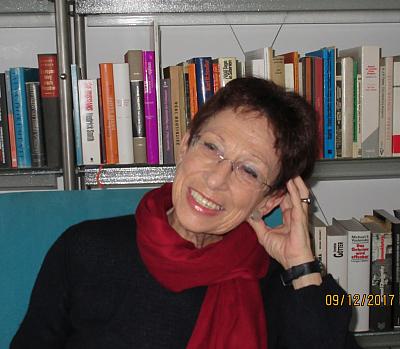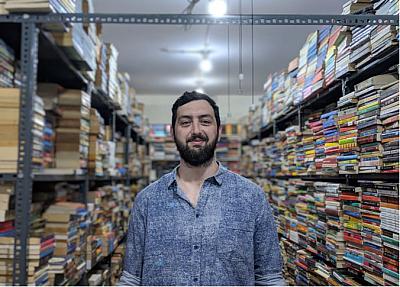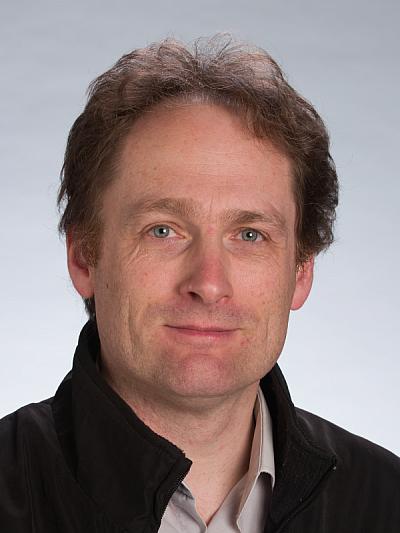Semi-Plenary Speakers
Maurizio Ambrosini, University of Milan, Italy
Semi-Plenary 14: "Negotiation, Boundary-Making and Social Relationships in Migration Processes: Cultural, Ethnic and Religious Challenges in Southern European Societies"
Maurizio Ambrosini, Phd in Sociology (1989), is Professor of Sociology of Migrations at the University of Milan. He gives courses also at the University of Nice-Sophia Antipolis (France) and at the Italian campus of the Stanford University. He is the editor of the journal Mondi Migranti and the Director of the Summer School of Sociology of Migrations (Genoa). His main interests cover immigrants’ labour markets, irregular migrations, ethnic entrepreneurship, migration policies, refugees studies. He is the author of more than 250 articles, chapters and books, published in different languages and in several leading scientific journals. Recently he published Irregular Migration in Southern Europe: Actors, Dynamics and Governance (Palgrave, 2018). He is responsible of the Italian unit of the European project MAGYC (H2020 program), on the governance of international migrations. In 2017 he has been appointed as an expert at the National Council of Economy and Labour (CNEL) of Italy.
Elijah Anderson, Yale University, USA
Semi-Plenary 13: "What Boundaries Are (Not) Needed For: Conceptualising Boundaries Beyond the Metaphor"
Elijah Anderson is the Sterling Professor of Sociology and of African American Studies at Yale University. He is one of the leading urban ethnographers and cultural theorists in the United States. His publications include Code of the Street: Decency, Violence, and the Moral Life of the Inner City (1999), winner of the Komarovsky Award from the Eastern Sociological Society; Streetwise: Race, Class, and Change in an Urban Community (1990), winner of the American Sociological Association’s Robert E. Park Award for the best published book in the area of Urban Sociology; and the classic sociological work, A Place on the Corner (1978; 2nd ed., 2003). Anderson’s most recent ethnographic work is The Cosmopolitan Canopy: Race and Civility in Everyday Life (2011). Professor Anderson is the recipient of a number of prestigious professional awards, including the Merit Award from the Eastern Sociological Society, the Cox-Johnson-Frazier Award and the W.E.B. DuBois Career of Distinguished Scholarship Award from the American Sociological Association.
Michaela Benson, Goldsmiths, University of London, UK
Semi-Plenary 06: "Nationalism, Europe, and Brexit"
Michaela Benson is Reader in the Department of Sociology, Goldsmiths and the project lead for BrExpats: Freedom of Movement, Citizenship and Brexit in the lives of Britons resident in the EU27 (https://brexitbritsabroad.com). She has been Visiting Professor at Universidad Diego Portales, Chile (2014) and Université Toulouse-Jean Jaurès (2018-19). She is the author of The British in Rural France (2011), which was shortlisted for the British Sociological Association Philip Abrams Memorial Prize 2012, and co-author of Lifestyle Migration and Colonial Traces in Malaysia and Panama (2018) and The Middle Classes and the City (2015). She has edited 3 volumes and is the author of 37 peer-reviewed journal articles and book chapters. She is currently Managing Editor of The Sociological Review, the longest-standing journal of sociology in Britain. Throughout her career she has been committed to engaging publics with social science research, through public speaking, broadcast and print media, podcasting, and contributions to educational resources.
Gurminder K Bhambra, University of Sussex, UK
Semi-Plenary 06: "Nationalism, Europe, and Brexit"
Gurminder K Bhambra is Professor of Postcolonial and Decolonial Studies in the School of Global Studies, University of Sussex. Previously, she was Professor of Sociology at the University of Warwick and has been Guest Professor of Sociology and History at the Centre for Concurrences in Colonial and Postcolonial Studies at Linnaeus University, Sweden. She is author of Connected Sociologies (2014, available open access) and the award-winning Rethinking Modernity: Postcolonialism and the Sociological Imagination (2007). She also co-edited a volume on Decolonising the University (2018) and has spoken regularly on the crisis for refugees in Europe and on questions of citizenship in the light of Brexit. She set up the Global Social Theory website (globalsocialtheory.org) to counter the parochiality of standard perspectives in social theory and is co-editor of the social research magazine, Discover Society (discoversociety.org).
Miranda Christou, University of Cyprus, Cyprus
Semi-Plenary 02: "Populism, Racism and Everyday Life in Europe"
Miranda Christou is an Assistant Professor in Sociology of Education at the University of Cyprus. Her research interests focus on questions of nationalism, globalization and the expansion of youth extreme right-wing movements. She has worked on multiple European projects such as: “INCLUD-ed: Strategies for Inclusion and Social Cohesion in Europe from Education” (FP6, ΙP, Integrated Project, 2006-2011) and “SOLIDUS: Solidarity in European Societies: Empowerment, Social Justice and Citizenship” (Horizon2020-Euro-Society-2014, Euro 3-European societies after the crisis, 2015-2018). She has published her work in various journals including Current Sociology, Qualitative Inquiry and British Journal of Sociology of Education. She was co-editor (with Spyros Spyrou) of the book Children and Borders (2014, Palgrave Macmillan).
Julia Dahlvik, University of Applied Sciences FH Campus Wien, Austria
Semi-Plenary 05: "Contested Boundaries of Humanitarianism. Refugee Movements and the Global Crisis of Asylum Systems"
Julia Dahlvik earned her PhD in Sociology in 2014 at the University of Vienna, Austria, and currently works at the University of Applied Sciences FH Campus Wien. Her research focuses on migration and asylum, law and society, and organisations. She was a visiting scholar at the University of Stanford and the University of Amsterdam and has been teaching at different Austrian universities. She is a founding member and co-speaker of the Law & Society section of the Austrian Sociological Association and has co-organised annual conferences on migration and integration research in Austria for several years. Julia’s book Inside Asylum Bureaucracy: Organizing Refugee Status Determination in Austria, based on her award-winning dissertation, was recently published with Springer Open Access in the IMISCOE Research Series. Julia has edited and published numerous books and articles; her work has been published in Migration Studies and Urban Research & Practice among others.
Christian Fuchs, University of Westminster, UK
Semi-Plenary 02: "Populism, Racism and Everyday Life in Europe"
Christian Fuchs is a Professor at the University of Westminster. He is the Co-Director of the Communication and Media Research Institute (CAMRI) and co-editor of the open access journal tripleC: Communication, Capitalism & Critique (http://www.triple-c.at). He is a former chair and current board member of ESA RN18 – Sociology of Communications and Media Research and was a member of the ESA Executive Committee from 2015-2017, where he was the chair of conference committee planning the 2017 Athens conference. His research focuses on critical sociology and the political economy and critical theory of communication. He is author of books such as Critical Theory of Communication (2016), Reading Marx in the Information Age (2016), Social Media: A Critical Introduction (2nd edition 2017), Digital Demagogue: Authoritarian Capitalism in the Age of Trump and Twitter (2018), and Rereading Marx in the Age of Digital Capitalism (2019, forthcoming).
Katarina Giritli Nygren & Angelika Sjöstedt Landén, Mid Sweden University, Sweden
Semi-Plenary 04: "Sociology, Feminisms and the Future of Global Gender Research"
Katarina Giritli Nygren is a Professor in Sociology and Director of the Forum for Gender Studies at Mid Sweden University. Her current research addresses different forms of governance relationships with a focus on spatial processes of inclusion and exclusion in terms of gender, class, and ethnicity in different contexts. In her most recent research, she argues for feminist and intersectional analyses of the shifting governmentalities of neoliberal welfare states to elucidate the movement from a welfare to a punitive state with an increased focus on risks and national security.
Angelika Sjöstedt Landén is a PhD in Ethnology and Senior Lecturer in Gender Studies at Mid Sweden University. She is the director of the human resources undergraduate programme. She has published articles, book chapters, co-edited books and editorials concerning intersectional studies of work life and gender equality policy as well as studies of rural morality and rural resilience including centre and periphery relations. Her work often aims at linking feminist and critical theory with research fields more rarely addressed with such perspectives.
Max Haller, University of Graz, Austria
Semi-Plenary 06: "Nationalism, Europe, and Brexit"
Max Haller, born 1947 in Sterzing (Italy), Dr.phil. Vienna 1974, Dr. phil. habil. Mannheim, Professor of Sociology at the University of Graz (Austria) 1985-2015. He was president of the Austrian Sociological Association and is a member of the Austrian Academy of Science. He was co-founder and Vicepresident of the European Sociological Association and co-founder of the International Social Survey Programme (ISSP). He was a visiting professor at universities in Austria, Germany, Hungary, the Czech Republic, Italy, California/USA and Tanzania. He published and edited 40 books and about 250 papers in international sociological journals (incl. AJS, ASR, Revue Française de Sociologie, International Sociology) and readers. His main research areas are social stratification, sociology of European integration, comparative social research, and sociological theory. Recent publications include Ethnic Stratification and Economic Inequality Around the World (with Anja Eder), Ashgate Publishing 2015; Higher Education in Africa. Challenges for Development, Mobility and Cooperation, Cambridge Scholars Publishing 2017 (ed. with Anne Goujon and Bernadette Müller).
Michael Keith, University of Oxford, UK
Semi-Plenary 01: "Urban Futures"
Michael Keith is Director of the Centre on Migration, Policy and Society (COMPAS) at the University of Oxford, co-ordinator of Urban Transformations (the UK Economic and Social Research Council’s portfolio of investments and research on cities), co-Director of the Oxford Programme for the Future of Cities and the Director of the PEAK Urban Research programme. Michael’s research focuses on migration related processes of urban change. His most recent work is the monograph China Constructing Capitalism: Economic Life and Urban Change (2014). He is currently completing (with Les Back and John Solomos) a book entitled Power, Identity and Representation: Race, Governance and Mobilisation in British Society. Michael also has substantial experience working on racism and the criminal justice system in the community and voluntary sector and as a politician. He is a co-founder and chair of the Rich Mix Cultural Foundation, a major cross cultural arts centre in East London, and has served as leader of the London Borough of Tower Hamlets, chair of the Thames Gateway London Partnership and a commissioner on the UK Government’s Commission on Integration and Cohesion.
Clary Krekula, Karlstad University, Sweden
Semi-Plenary 07: "Ageing in Europe: Agency, Citizenship and the Dynamics of Power"
Clary Krekula is Professor of Sociology at Karlstad University, Sweden. Her research focuses on critical age studies, ageing from an intersectional perspective, and time and temporality. From these perspectives, she has brought attention to women’s embodied ageing and to age normalities and temporal regimes in work organisations. She is involved in national and international collaborations within these fields and runs the national network AgeS: a Swedish research network, which focuses on developing critical age studies and research on temporality. She is currently conducting research on dynamics of inequality across the life course, self-employment later in life and the social and corporeal aspects of dancing among older people. Her most recent books are Gender, Ageing and Extended Working Life. Cross-National Perspectives (with A. Ní Leime, D. Street, S. Vickerstaff & W. Loretto) and Introduktion till kritiska åldersstudier (Introduction to critical age studies) (with B. Johansson).
(Photo credit: Andreas Reichenberg, Karlstadt)
Roman Kuhar, University of Ljubljana, Slovenia
Semi-Plenary 11: "Sexual Citizenship in Europe and Beyond"
Roman Kuhar is professor of sociology at the Department of Sociology, Faculty of Arts, University of Ljubljana, and teaches courses on gender, sexuality, popular culture and everyday life. Currently he is the dean of the Faculty of Arts and the head of the research programme The Problems of Autonomy and Identity in the Times of Globalization.
He is the author of several books, among others Media Construction of Homosexuality, co-author (with A. Švab) of The Unbearable Comfort of Privacy and co-editor (with J. Takács) of Beyond the Pink Curtain: Everyday life of LGBT people in Eastern Europe and (with D. Paternotte) of Anti-gender Campaigns in Europe: mobilizing against equality (Rowman & Littlefield International, 2017. Translation into French: Campagnes anti-genre en Europe: des mobilisations contre l'égalité, 2018, Presses Universitaires de Lyon). He is also one of the associate editors at Social Politics (Oxford University Press).
Lauren Langman, Loyola University of Chicago, USA
Semi-Plenary 09: "Social Mobilisations and the Shape of the Future: To the Left, Right, or Nowhere"
Lauren Langman, Professor of Sociology, Loyola University of Chicago, Ph.D. from the University of Chicago, has long worked in the tradition of the Frankfurt School of Critical Theory, especially relationships between culture, identity and politics/political movements. He is the past President of RC36 Alienation Research Committee of the ISA, past chairman of the Marxist section of the ASA. His publications deal with globalization, alienation, identity, hegemony, global justice movements, reactionary movements, nationalism and national character. Recent publications include Trauma Promise and Millennium: The Evolution of Alienation, with Devorah Kalekin, Alienation and Carnivalization with Jerome Braun and editing a special issue with Tova Benski, of Current Sociology on Arab Spring, the Indignados and Occupy. His latest books are God, Guns, Gold and Glory and Inequality in the 21st C: Marx, Piketty and Beyond. He is on several editorial boards, including Critical Sociology, Sociopedia, and Current Perspectives in Social Theory.
Linsey McGoey, University of Essex, UK
Semi-Plenary 10: "Understanding Risk and Uncertainty in the Anthropocene"
Linsey McGoey is an Associate Professor in social theory and economic sociology at the University of Essex. She is recognized internationally for playing a pioneering role in the establishment of ignorance studies, an interdisciplinary field focused on exploring how strategic ignorance and the will to ignore have underpinned economic exchange and political domination throughout history. She is author of No Such Thing as a Free Gift (Verso, 2015) and The Unknowers: How Strategic Ignorance Rules the World (Zed, 2019). She is a founding co-editor of the Routledge Research in Ignorance Studies book series, and is a member of the core editorial board at Economy and Society.
Phoebe Moore, University of Leicester, UK
Semi-Plenary 03: "Boundaries, Barriers and Belonging in Digital Labour Capitalism"
Phoebe V Moore is an Associate Professor in Political Economy and Technology at the University of Leicester School of Business, Division of Management and Organisation. Her research looks at the impact of technology on work from a critical perspective. Moore’s most recent book The Quantified Self in Precarity looks at quantification through wearable tracking and algorithmic decision-making as a set of management techniques, with evidence of creative new controls of affective labour and various forms of worker resistance to corporeal capitalism arising. In 2018-19, Moore published one report for the International Labour Organisation (ILO) workers’ bureau, ACTRAV, and will publish one further paper for the European Union agency for Safety and Health (EU-OSHA) on the risks that digitalization and artificial intelligence pose for workers. Previously, she was funded by the British Academy / Leverhulme (2015-2017) to carry out a research project looking at digital tracking in office work in the Netherlands. Alongside her Associate Professorship, in Autumn 2018, Moore is carrying out a research fellowship at the WZB in Berlin working closely with two research groups on artificial intelligence and quantification at the Weizenbaum Institute.
Sevasti-Melissa Nolas, Goldsmiths, University of London, UK
Semi-Plenary 12: "New Understandings of Children and Young People’s Activism"
Sevasti-Melissa Nolas is a Senior Lecturer in Sociology at Goldsmiths, University of London. Her research areas include: human agency and lived experience, childhood, youth and family lives, civic and political practices across the life course, and publics creating methodologies. She is the Principal Investigator of the ERC funded Connectors Study and the co-editor of entanglements: experiments in multimodal ethnography.
Dimitris Parsanoglou, Panteion University of Social and Political Sciences, Athens, Greece
Semi-Plenary 05: "Contested Boundaries of Humanitarianism. Refugee Movements and the Global Crisis of Asylum Systems"
Dimitris Parsanoglou is a Lecturer and Senior Researcher at the Department of Social Policy at Panteion University of Social and Political Sciences in Athens. He holds a DEA and a PhD in Sociology at the Ecole des Hautes Etudes en Sciences Sociales in Paris. He has coordinated, as Senior researcher of the Centre for Gender Studies of the Panteion University, the FP7 project “MIG@NET: Transnational Digital Networks, Migration and Gender” and he has taught Sociology at the Department of Philosophy and Social Studies of the University of Crete. He was a Post-doctoral research fellow at the University of Peloponnese, in the framework of the ARISTEIA project “Migration Management and International Organizations: A history of the establishment of the International Organization for Migration”. He is currently coordinating the project “Beyond the ‘refugee crisis’: Investigating patterns of integration of refugees and asylum seekers in Greece”, funded by the Hellenic Foundation for Research and Innovation.
Ilaria Pitti, Marie Sklodowska Curie Fellow at Örebro University, Sweden
Semi-Plenary 12: "New Understandings of Children and Young People’s Activism"
Ilaria Pitti is Marie Sklodowska Curie Fellow at Örebro University (Sweden) and Vice-President (Southern Europe) of ISA’s RC34 “Youth Studies”. Her academic research is located at the crossroad between youth and social movement studies, focusing on the analysis of young people’s participation in social movement organisations and subcultures. She is also interested in the effects of precariousness on young people’s lives and on young people’s individual and collective reactions to precariousness. On these topics, she has conducted research mostly through qualitative methods, participating in national and international projects (Horizon 2020 projects Partispace and Youthblocs). Her most recent publications include the book Youth and Unconventional Political Engagement (2018) and the article "Being women in a male preserve: an ethnography of female football ultras" (2018, Journal of Gender Studies).
Diane Richardson, Newcastle University, UK
Semi-Plenary 11: "Sexual Citizenship in Europe and Beyond"
Diane Richardson is Professor of Sociology in the School of Geography, Politics and Sociology at Newcastle University and a Fellow of the Academy of Social Sciences. She is internationally recognised for her work in the areas of feminism and the sociological study of gender and sexualities. Her recent research explores issues of identity, citizenship, recognition and belonging, and debates about equality. Her book Sexuality and Citizenship (2018, Polity) was based on a Leverhulme Major Research Fellowship project entitled Transforming Citizenship?: Sexuality, Gender and Citizenship Struggles. Other books include Rethinking Sexuality; Contesting Recognition: Culture, Identity and Citizenship (with J. McLaughlin and P. Phillimore); Intersections Between Feminism and Queer Theory (with J. McLaughlin and M. Casey); and Sexuality, Equality and Diversity (with S. Monro). A fifth edition of Introducing Gender and Women’s Studies, co-edited with Vicki Robinson, will be published in 2020. With Vicki, she also co-edits Palgrave Macmillan’s international book series Genders and Sexualities in the Social Sciences.
Elisabetta Ruspini & Rassa Ghaffari, University of Milano-Bicocca, Italy
Semi-Plenary 04: "Sociology, Feminisms and the Future of Global Gender Research"
Elisabetta Ruspini is Associate Professor of Sociology at the University of Milano-Bicocca, Italy. She holds a PhD in Sociology and Social Research from the University of Trento. She is a Board Member of the European Sociological Association Research Network 33 ‘Women’s and Gender Studies’. She is the Scientific Coordinator of “ABCD-Centro Interdipartimentale per gli Studi di Genere/ABCD-Interdepartmental Center for Gender Studies”, University of Milano-Bicocca. Her research interests include: The Social Construction of Gender; Gender Stereotypes and Gender Roles; Gender and the Generation Turnover; Family Change; New Forms of Parenthood; Men and Masculinities; Social Inequalities; Gender and Poverty; Economic Socialization; Gender and Religion; Future Studies. She has published extensively and contributed papers to several national and international conferences/seminars/workshops on gender, generational and family issues. Among her recent publications: (with G. Bonifacio and C. Corradi, eds.) Women and Religion. Contemporary and Future Challenges in the Global Era, Bristol, 2018; Diversity in Family Life. Gender, Relationships and Social Change, Bristol, 2013.
Rassa Ghaffari is a PhD candidate in Sociology at the University of Milano-Bicocca with a thesis on the representations of gender roles among two generations in Iran. She has been visiting researcher at the Faculty of Oriental Cultures and Languages, University of Oslo, and holds a master’s degree in African and Asian studies. Her research interests include youth studies, generation studies and Iranian culture and society. She was awarded the Cesare Bonacossa scholarship for a field research in 2014 and the Marina Chiola award for the best master’s thesis on gender issues in 2015.
Camille Schmoll, University of Paris Diderot, France
Semi-Plenary 14: "Negotiation, Boundary-Making and Social Relationships in Migration Processes: Cultural, Ethnic and Religious Challenges in Southern European Societies"
Camille Schmoll is an Associate Professor in geography at University of Paris Diderot, member of the CNRS team “Géographie-cités” and a fellow of Institut Convergences Migrations. In 2017, she was appointed member of the scientific commission in charge of the permanent exhibition at Cité Nationale de l’Histoire de l’Immigration. Her research topics include migration policies; urban approaches to migration patterns; cosmopolitanism and borders; gender, generation and the family in international migration; qualitative methods. She published several articles in this field in the most outstanding international journals and co-edited the following books: Méditerranée. Frontières à la dérive (2018, Le Passager Clandestin); Migrations en Méditerranée (with Wihtol de Wenden and Thiollet, 2015, CNRS), Gender Generations and the Family within International Migration (with Kofman, Kraler, and Kohli, 2011, AUP); Stranieri in Italia. La generazione dopo (with Barbagli, 2011, Il Mulino). She is writing a book on Gender and Migration in the Mediterranean (La Découverte).
Farzana Shain, Keele University, UK
Semi-Plenary 02: "Populism, Racism and Everyday Life in Europe"
Farzana Shain is Professor of Sociology of Education at Keele University, England. Her research includes work on education policy and politics, inequalities, education and the ‘war on terror’ and children and young people’s political engagement and activism. Her books include The Schooling and Identity of Asian Girls and The New Folk Devils: Muslim Boys and Education in England. She is one of the Executive Editors of the British Journal of Sociology of Education and is currently a Leverhulme Research Fellow (2017-2019), researching ‘Muslim girls’ accounts of their past, present and future lives’.
Vanessa E. Thompson, Goethe-University Frankfurt, Germany
Semi-Plenary 06: "Nationalism, Europe, and Brexit"
Vanessa E. Thompson is a postdoctoral researcher and lecturer at the Institute of Sociology at Goethe-University Frankfurt. She was previously a fellow at the Department of Black Studies at the University of California, Santa Barbara. Her research and teaching are focused on black studies, critical race and racism studies, post- and decolonial feminist theories and methodologies, gender and queer studies, and social movement theories. Her book project, Solidarities in Black: Anti-Black Racism, Black Urban Activism and the Struggle beyond Recognition in Paris, explores forms of black urban activism and anti-racist mobilizations against anti-black racism in France as well as analyzes the re-production of coloniality through the workings of neoliberal French Republican Universalism. Her current research project focuses on racial gendered policing in Europe and transnational articulations of abolitionist alternatives from a black feminist perspective. Vanessa has published articles on the work of Fanon, black social movements in Germany and France, and racial gendered policing in Europe.
Greg Thorpe, Manchester Pride, UK
Semi-Plenary 11: "Sexual Citizenship in Europe and Beyond"
Greg Thorpe is the Project Manager for Superbia, the year-round programme of culture from Manchester Pride. The project curates, supports and promotes LGBT+ culture in Manchester and operates a grant programme for any work that is by, for or about LGBT+ communities in the ten boroughs. Greg is also a writer, artist and independent curator, and works for the independent artist community Islington Mill in Salford.
Sabine Trittler, University of Konstanz, Germany
Semi-Plenary 08: "Symbolic Boundaries: Barriers or Belonging(s)?"
Sabine Trittler is a postdoctoral researcher and lecturer at the University of Konstanz, Germany, who received her doctorate in Social Sciences from the University of Göttingen in 2017. Her research interests lie at the intersection of sociology of religion, nationalism, and integration research and focus on the role of religion as a marker of national belonging in cross-national comparison. As such she is interested in the formation of religious and secular boundaries of belonging, their relationship towards the toleration and integration of immigrants, as well as the perceptions of these symbolic boundaries among the minority populations in Europe. Her work has been published in Nations and Nationalism, European Sociological Review and Journal of Ethnic and Migration Studies.
Gert Verschraegen, University of Antwerp, Belgium
Semi-Plenary 08: "Symbolic Boundaries: Barriers or Belonging(s)?"
Gert Verschraegen is Associate Professor of Sociology at the University of Antwerp (Belgium), where he also serves as the head of the department of sociology. His main research interests are in social theory, cultural sociology, the sociology of science and knowledge and the sociology of European integration. His work has appeared in Poetics, Citizenship Studies, Journal of European Social Policy, Futures, Innovation, Journal of Law and Society, Current Sociology and many other journals. His most recent books include Divercities: Dealing with Diversity in Deprived and Mixed Neighbourhoods (2018, Policy Press, edited with Stijn Oosterlynck) and Imagined Futures in Science, Technology and Society (2017, Routledge, edited with Frédéric Vandermoere, Luc Braeckmans en Barbara Segaert).
Sylvia Walby, City University of London, UK
Semi-Plenary 09: "Social Mobilisations and the Shape of the Future: To the Left, Right, or Nowhere"
Professor Sylvia Walby has worked at City University of London as Professor of Sociology and Director of the interdisciplinary Violence and Society Centre since 1 March 2019. She was previously at Lancaster University where she was Distinguished Professor of Sociology, held the UNESCO Chair in Gender Research, and was Director of the Violence and Society UNESCO Centre. Sylvia was the founding President of the European Sociological Association, elected after chairing the steering committee to establish the association. She has been President of the International Sociological Association’s Research Committee RC02 on Economy and Society. She is a Fellow of the Academy of Social Sciences and a Fellow of the Royal Society of Arts. Professor Walby was awarded an OBE for services to equal opportunities and diversity. She is Chair of the REF Sub-Panel for Sociology.
Bernhard Weicht, University of Innsbruck, Austria
Semi-Plenary 07: "Ageing in Europe: Agency, Citizenship and the Dynamics of Power"
Bernhard has studied Economics in Vienna/Austria and Social Policy in Nottingham/UK. He holds a PhD from the University of Nottingham where he researched the social and moral construction of care for older people. He continued his work on care and ageing as Marie Curie Fellow at Utrecht University, Netherlands with a project on the intersections of care and migration regimes. Prior to joining the department of Sociology at the University of Innsbruck he worked as lecturer at Leiden University College. He received his Habilitation at the University of Innsbruck in 2018 with his work entitled “A Caring Sociology for Ageing Societies“. Bernhard has published on the construction of care, ideas of dependency, migrant care workers, the intersection of migration and care regimes and the construction of ageing. He is the author of The Meaning of Care (2015) and co-editor of The Commonalities of Global Crisis (2016), both published by Palgrave Macmillan.
Ruth Wodak, Lancaster University, UK and University of Vienna, Austria
Semi-Plenary 13: "What Boundaries Are (Not) Needed For: Conceptualising Boundaries Beyond the Metaphor"
Ruth Wodak is Emerita Distinguished Professor of Discourse Studies at Lancaster University, UK, and affiliated to the University of Vienna. Besides various other prizes, she was awarded the Wittgenstein Prize for Elite Researchers in 1996 and an Honorary Doctorate from University of Örebro in Sweden in 2010. She is member of the British Academy of Social Sciences and of the Academia Europaea. Her research interests focus on discourse studies; language and/in politics; prejudice and discrimination; and on ethnographic methods of linguistic field work. Recent book publications include The Handbook of Language and Politics (Routledge 2018, with B. Forchtner); The Politics of Fear. What Right-wing Populist Discourses Mean (Sage, 2015; translation into the German Politik mit der Angst. Zur Wirkung rechtspopulistischer Diskurse. Konturen, 2016), and The Discourse of Politics in Action. Politics as Usual (2011 Palgrave).
Jamie Woodcock, University of Oxford, UK
Semi-Plenary 03: "Boundaries, Barriers and Belonging in Digital Labour Capitalism"
Dr Jamie Woodcock is a researcher at the Oxford Internet Institute, University of Oxford. He is the author of Marx at the Arcade (Haymarket, 2019) about videogames, and Working The Phones (Pluto, 2017), a study of a call centre in the UK – both inspired by the workers' inquiry. His research focuses on labour, work, the gig economy, platforms, resistance, organising, and videogames. He is on the editorial board of Notes from Below and Historical Materialism.
Jens Zinn, University of Melbourne, AU and Mid-Sweden University, SE
Semi-Plenary 10: "Understanding Risk and Uncertainty in the Anthropocene"
Jens O. Zinn is Associate Professor in Sociology at the University of Melbourne and Guest Professor at the Sociology Department and the Risk and Crisis Research Centre at Mid-Sweden University. He researches how societies, organisations and individuals perceive and respond to risk and uncertainty. In a recent initiative he develops conceptual tools to better understand risk taking. In an interdisciplinary research project, he examines how language and the social combine in the changing discourse-semantics of risk. In 2015 the Alexander von Humboldt Foundation awarded him the Friedrich-Wilhelm Bessel Price. Zinn founded two international risk networks within the International Sociological Association in 2006 (TG04) and within the European Sociological Association in 2005 (RN22) and headed these networks for many years. In ‘Living in the Anthropocene: Towards a Risk-Taking Society.’ Environmental Sociology 2(4) he discusses environmental degeneration from a risk perspective.
